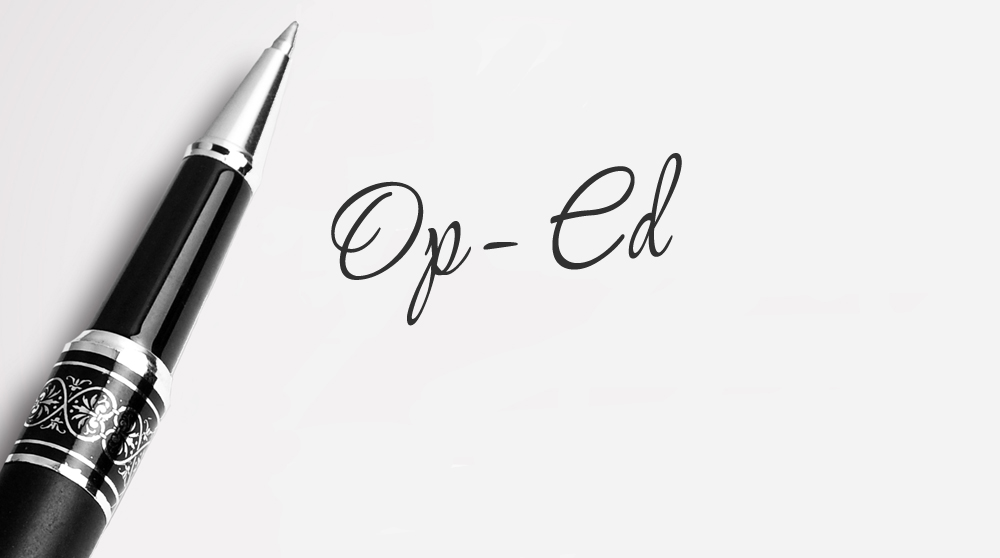
Op-Ed: Sussmann trial exposes Dems’ scandal-industrial process
Modern political scandals, like Caesar’s Gaul, are divided into three parts. The first is the actual malfeasance. That might be taking bribes, lying to federal agents, leaking classified materials, sexual misconduct, selling political access, whatever.
The second part is the hyper-partisan involvement of Congress and, often, federal agencies, all eager to score points for their side. The third part is the media’s role, which goes beyond bias to include active promotion of political goals.
Federal agencies, like all bureaucratic institutions, have always tried to increase their power and preserve their autonomy. What’s different today is that the bureaucrats, and often their entire agencies, are frequently partisan players. That’s disheartening but understandable.
One party is clearly the “party of government” and the party of experts. Most educated professionals, including bureaucrats and journalists, identify with that party. Filled with partisan “civil servants,” these agencies routinely tilt investigations (or kill them outright) to advance political goals – the same ones as their favored party.
For the same reasons, they leak insider information to friendly media. Predictably, the opposing party tries to score points by attacking them for doing so.
That brings us to the third element of these scandals: the “friendly media.” Mainstream outlets are not just biased.
They often become outright partisans when a potential scandal could hurt conservatives or populists. That bias degrades what was once called “hard news.” Today, neutral reporting is as antiquated as rotary phones, conservative Democrats, and liberal Republicans.
The media’s bias, both left and right, is amplified by the fragmentation of the digital landscape. That fragmentation encourages each outlet to appeal to its self-selected audience and avoid alienating them with uncomfortable information.
The trial of Hillary Clinton lawyer Michael Sussmann illustrates how modern scandals have devolved into this dismal three-ring circus. Last Thursday, the FBI’s former general counsel, James Baker, testified at length that his old friend Sussmann had requested an urgent private meeting and provided the bureau damning, confidential information.
Sussmann claimed he did so solely “as a good citizen,” not on behalf of any client. Sussmann made the same claim in a text message to Baker the night before. Baker testified that he was “100% confident” Sussmann had repeated his disclaimer at the beginning of their meeting. (Before Special Counsel John Durham’s team concluded their case on Wednesday, they showed the jury that Sussmann had actually billed the Clinton campaign for that meeting.) Baker’s testimony was especially powerful because he was clearly reluctant to provide it.
The papers and thumb drives Sussmann gave Baker were designed to show that Donald Trump was secretly communicating with a Kremlin-connected European bank. The implication was that this back-channel communication was part of Vladimir Putin’s effort to elect Trump, a line the Clinton campaign eagerly promoted.
Baker testified he was alarmed by the prospect, which is why he immediately briefed his bosses, including FBI Director James Comey. Baker gave the materials Sussmann had provided to the bureau’s cyber experts, who quickly discovered it was rubbish. Their conclusion: Trump was not secretly communicating with Russia’s Alfa Bank.
Baker’s testimony was followed, on Friday, by that of Clinton campaign manager Robby Mook. Mook casually (perhaps inadvertently) dropped a bombshell. Hillary Clinton, he said, had personally approved sharing the Trump-Alfa Bank story with the press.
Mook said the campaign wasn’t sure if the story was true but figured the press would look into it. Hillary agreed and approved spreading the false story.
But Mook cannot be right when he says “the campaign” didn’t know if the Alfa Bank story was true. Mook may not have known, but others in the campaign surely did since they were the ones who created the false story.
They expended campaign funds to generate that dishonest “inference and narrative” about Trump and Alfa Bank from internet data, knowing it would fool only naïve FBI agents and reporters. Real cyber experts could – and did – disprove the “inference” almost immediately.
The Alfa Bank tale wasn’t the Clinton campaign’s only dirty trick. They also commissioned the now-disproven Steele dossier and aggressively shopped it to the FBI, Department of Justice, State Department, and, of course, the press.
Both the Alfa Bank story and the Steele dossier had the same goals: Smear Donald Trump, generate media reports that the “FBI is investigating,” and distract the media from Hillary’s own problems with her private email server and the classified documents it contained. The obvious goal before November 2016 was to prevent Trump’s election.
That’s why Sussmann wanted the late October meeting with Baker so urgently. After Trump was elected, the new goal was to hamstring his presidency by tying him up in investigations.
That is presumably why Sussmann later met with the CIA and gave them the same Alfa bank story, plus another fable about secret Russian mobile phones that were always near Trump. Again, pure garbage, based on cherry-picked data and quickly shown to be worthless.
The Sussmann trial indicates how the media and federal agencies play into the Democrats’ scandal-industrial process. Take Mook’s testimony last Friday. It was a huge story because, for the first time, a Clinton insider directly tied Hillary to the smear campaign.
That campaign was the biggest political dirty trick in modern American politics, one the media had actively promoted. Yet, when the bombshell exploded, the mainstream media went silent, both about the news and about their own culpability.
On Friday, when the news broke, ABC, CBS, NBC, CNN, and MSNBC did not mention the Mook bombshell or even the Sussmann trial. Not a peep. Saturday’s New York Times was equally silent. The Washington Post did cover the story but buried the lede – Hillary Clinton’s direct involvement – well down in their report.
A Post national correspondent actually ran an “analysis” piece entitled “Again: There’s No Evidence Hillary Clinton Triggered the Russian Probe.”
Robert Mueller’s prolonged investigation as Special Counsel missed this whole massive scandal. When Mueller testified before Congress, he was asked about Fusion GPS, a central player in Clinton’s smear campaign, and the Special Counsel said he’d never even heard of the firm.
What about the FBI? How did it treat Sussmann’s information about Trump and Alfa Bank?
General Counsel Baker testified that he immediately informed the bureau’s top officials, noting Sussmann’s assurance that he had no client. Although the Alfa Bank story was quickly disproven, that didn’t stop the bureau’s relentless investigation of Trump’s ties to Russia.
Two days after Sussmann gave the FBI his (false) information, the head of the bureau’s counter-intelligence division texted a colleague, “People of the 7th floor to include Director are fired up about this server.” They were so fired up they refused to let agents know Sussmann’s name, referred to him (dishonestly) as the “Department of Justice,” and refused to let agents interview the authors of the cyber data given to Baker.
The FBI handled the Steele dossier the same way they handled Sussmann’s material – a mixture of incompetence and malign intent, trampling over administrative safeguards and legal rules in an effort to ensnare Donald Trump.
Even though the FBI couldn’t verify the dossier’s salacious allegations, it used them to impale the president-elect. Comey briefed Trump on the worst allegations and then secretly told the press that the FBI was investigating them.
Over the next month, the bureau conducted lengthy interviews with Steele’s principal source (Igor Danchenko, now indicted himself) and learned the dossier’s allegations were based on bar talk and rumors, as told by a Brookings Institution researcher, not Kremlin insiders. That didn’t stop – or even slow – the government’s pursuit of Trump, and its use of this discredited material.
The falsity of the Alfa Bank connection and Steele dossier – and the FBI’s knowledge of their falsity – did not stop the bureau from spying on Trump associates for purported “Russian connections.” That surveillance didn’t stop even after field agents said their investigation turned up no evidence and should be closed.
Instead, Comey and his deputy, Andrew McCabe, personally kept the investigation open. Since the spying required FISA warrants (from the court overseeing the Foreign Intelligence Surveillance Act), the FBI omitted or doctored exculpatory information to renew their authorization. Yet another subversion of justice.
The full scope of this multi-pronged scandal is finally emerging after five years of administrative misconduct, media coverups, partisan reporting, and pervasive deceit by Washington insiders. What is still submerged is any accountability.
The media is still burying the story and its own role in promoting those lies. Nobody has returned their dubious Pulitzer Prizes. Senior officials in Comey’s FBI have never been held to account. Congressmen, led by California Democrat Adam Schiff, who continued the smear and leaked their closed-door inquiries to the press, still appear on the Sunday talk shows.
Hillary Clinton, who sat atop the conspiracy, was given a quick “all clear” by the FBI on her server and has not been targeted for federal investigation in the subsequent scandals. That Mook’s testimony surprised Durham’s prosecutors indicates they never bothered to probe Hillary’s involvement before the grand jury.
The Sussmann trial, like all modern political scandals, is part of a three-ring circus, showcasing sleazy political enablers, malfeasance by public officials, and biased reporting. In this circus of deceit, the public has to walk behind the elephants with a huge shovel.
Charles Lipson is the Peter B. Ritzma Professor of Political Science Emeritus at the University of Chicago, where he founded the Program on International Politics, Economics, and Security. He can be reached at charles.lipson@gmail.com.






